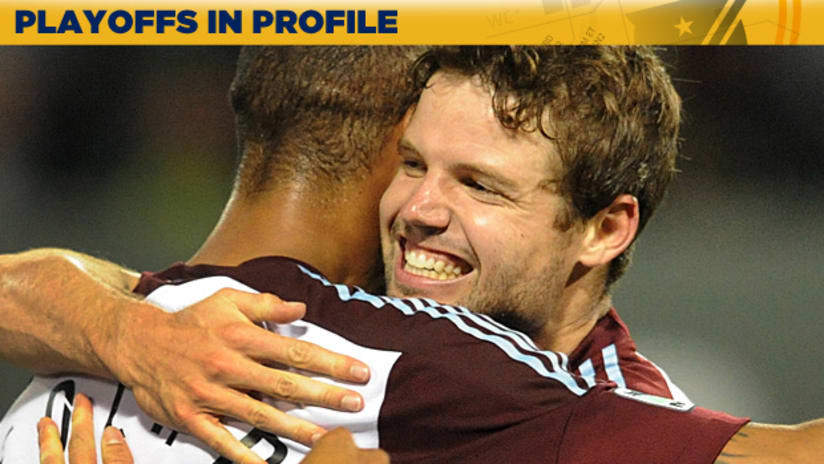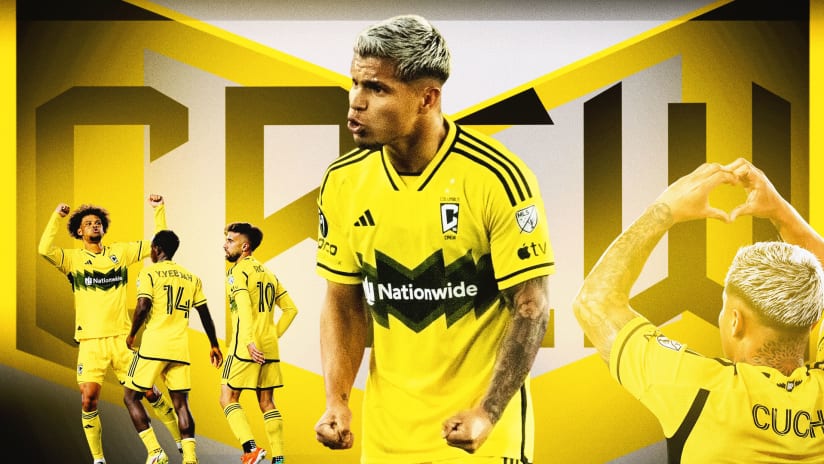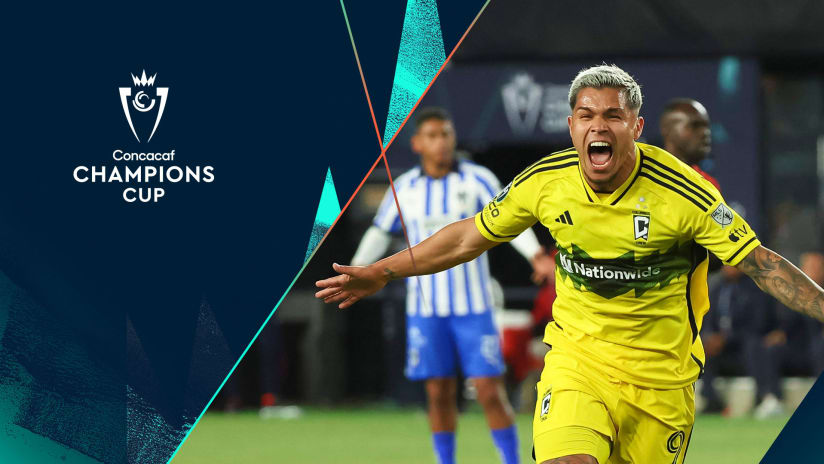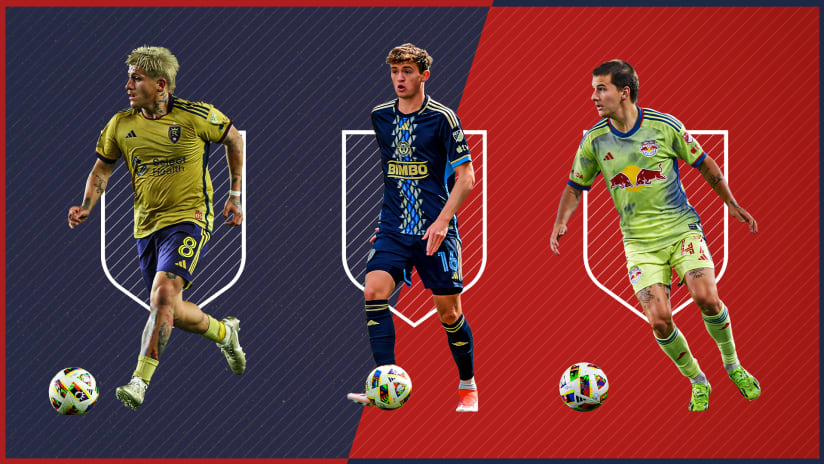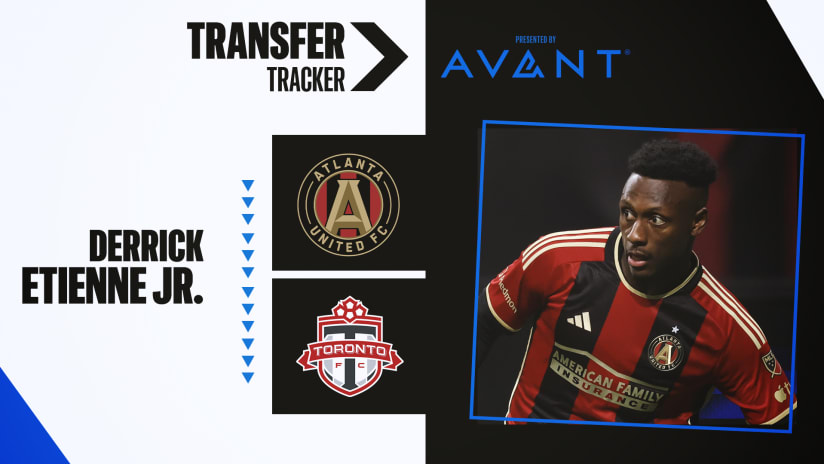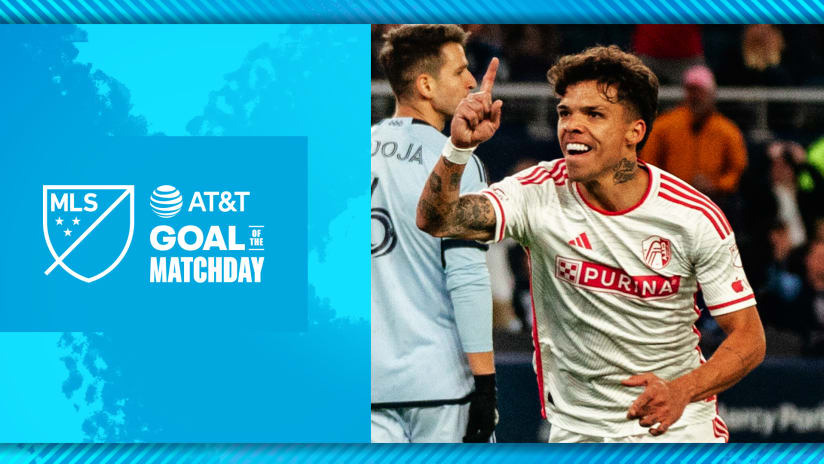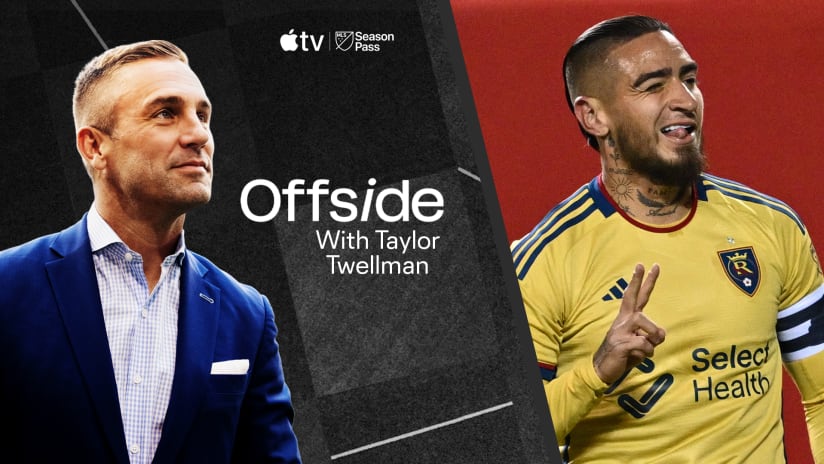As the MLS Cup playoffs continue, the MLSsoccer.com series "Playoffs In Profile" will take a look at the players and personalities who will each play a crucial role in their teams' hopes of winning the MLS Cup.
In the third installment, new media editor Nick Firchau looks at a fateful choice made by Drew Moor and some of the decisions made for him, and the effects they've had on the Colorado Rapids' center back. Check back with MLSsoccer.com to read the latest story as the "Playoffs in Profile" series continues this week
COMMERCE CITY, Colo. – There are a number of “what-ifs” scattered throughout Drew Moor’s soccer career — moments when he either had control of his fate or he never even stood a chance.
What if, for example, he didn’t weigh 163 pounds after Thanksgiving dinner? If he weighed something more like a prototypical center back at 185 or 195 pounds, then would someone finally give him a real shot at the US national team?
Or consider the trade from FC Dallas. Let’s say Schellas Hyndman doesn’t call Moor into the coach’s office in 2009 and inform him that Colorado has signed off on the deal, sending Ugo Ihemelu to Dallas and bringing Moor to Denver. Would Moor still be an MLS Cup champion?
And what if Moor’s father didn’t get the chance to wake him up with a frantic phone call on a seemingly harmless Friday morning in October 2002? What if Moor hadn’t been there to answer, because he’d made the simple choice to pile into a car with his buddies that eventually spilled onto the highway in South Carolina and killed his friend?
It’s pointless to look back now and wonder what could have happened in Moor’s life and his career, and those who know him best wonder why he ever would. That’s because the end result of his choices and the ones made for him leave him with a pretty good prognosis: He’s alive, he’s a champion and he’s perfectly comfortable being the most underrated player in MLS.
A Fateful Decision
Raised in Dallas in what he considers a typical household, Moor had an athlete for a father and desperately wanted to be one himself. And he was good – good enough to be named the High School Player of the Year in Texas as a senior and to earn a shot with nationally ranked Furman University during his freshman year in 2002.
The Paladins lived up to high expectations that season, and there was plenty of reason to cheer the big names on a small campus. That team included a lanky, mop-topped kid from Texas named Clint Dempsey and an All-American midfielder in Ricardo Clark, as well as the conference Freshman of the Year in Moor and a talented defender and co-captain from the 2001 US Under-17 national team named Gray Griffin.
“That was a fantastic team, an absolutely fantastic team,” Moor said. “We were Top 10 all year and we’d won some big games. We still talk and smile about what it was like to be part of a team that special and how it was so much fun, even if it was for just a short while.”
Unfortunately, however, the moment that defined that team also effectively helped break them apart.
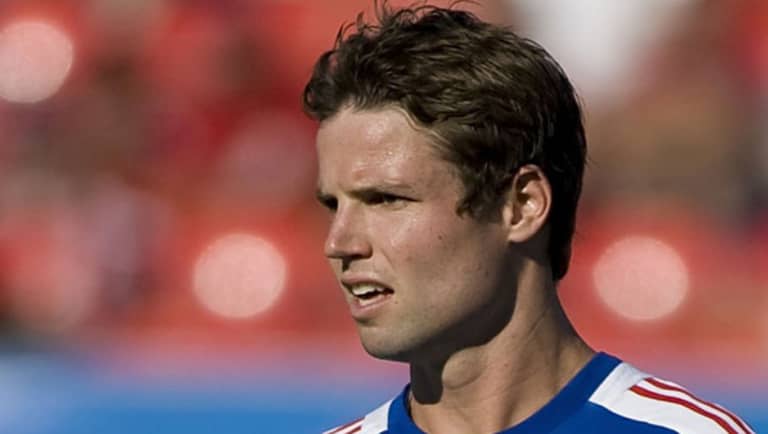
Griffin and three teammates were traveling back from a concert in North Carolina when the SUV they were riding in swerved to the left on a stretch of Interstate 85, tipped over and was smashed by an oncoming tractor trailer. Moor’s teammate and schoolboy friend Chefik Simo suffered a fractured pelvis and numerous other injuries in the crash.
Griffin, who helped anchor Furman’s back line with Moor in what should have been a look into the future of a program and a friendship on the rise, was killed.
“Everybody says life is sweet, and you have to cherish everything,” Moor said. “Honestly, the first thing it made me think was that life was fragile. Little tiny moments suddenly made a very big difference.”
There are a series of questions Moor asks when he thinks of that moment now. Of course the most treacherous one is if he’d been in the car that rolled, if he was the one who wouldn’t have made it home. But what if dumb luck and teenage peer pressure made him put away his text book when the group knocked on his door an hour before they hit the road, and he’d dragged Dempsey with him?
Then there are two cars on that road headed back from Charlotte, and maybe the caravan slows down here or there. Maybe the lead car never tips, or the tractor trailer sails by unscathed across the state line. Maybe no one dies at all.
“It could have changed things either way, but I ask myself that every day,” Moor said. “What if I had gone?”
The next game was an emotional one and close to a sellout at home, and it kick-started six straight shutouts that sent the Paladins charging into the third round of the NCAA tournament. But even before the team bowed out to Stanford, before Clark’s exodus to the pros the next season preceded the same early jump for Dempsey in 2004, nothing was ever going to be the way it was for Moor.
That spring he told head coach Doug Allison he was set to transfer to national powerhouse Indiana, partly so he could find a clearer path to the pros and partly because he wanted out of Furman and what was left there after the accident.
“It was a tough place to wake up to after everything that happened,” Moor said. “You’re seeing the field differently, the stadium differently, the locker room differently.
“A lot of people say that maybe I wasn’t strong enough at that time, or the decision was a selfish one,” he added. “And maybe it was. But it was the right choice for me at the time, and I knew it.”
Moor won two national titles at Indiana and was eventually taken sixth overall by FC Dallas in the 2005 MLS SuperDraft, right behind a kid from Southern Methodist University named Ugo Ihemelu.
Leaving Texas
Each younger player in the league now has a story about how he was weaned on MLS at some point, and Moor’s inevitably takes him back to opening day for the Dallas Burn in the Cotton Bowl.
Moor appeared in 20 games as a rookie and went wherever head coach Colin Clarke or assistant Steve Morrow asked: center back, right back, in the midfield. By the time Morrow was sacked midway through the 2008 season and the FC Dallas front office took a shot on Hyndman as his replacement, Moor’s status seemed clear: He was there to stay.
It wasn’t that Moor and Hyndman didn’t get along — they certainly did, and they still offer glowing reviews of what each other have accomplished. But Moor was a bit younger then and perhaps naïve to the abrupt and almost sterile manner in which a guy’s career ends with one team and begins with another: a tap on the shoulder, the unassuming walk to the coach’s office and a flight out of town.
According to Hyndman, the Rapids had offered up Ihemelu in a deal that would unite the promising center back with his former SMU head coach, and they wanted Moor in return. Hyndman had previously flirted with the idea of making Moor captain, but the writing was on the wall as the new FC Dallas head coach began the work of remaking his team.
“It was never anything personal with Drew, but we just wanted a different fit,” Hyndman said. “In fact, it was one of the toughest things I’ve done as a head coach to let Drew go.”
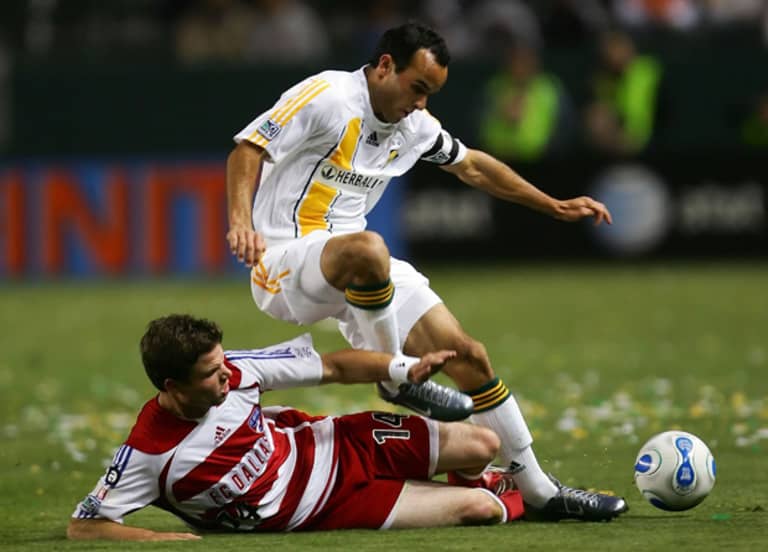
Moor didn’t take it well. He’d worn the captain’s armband during games when Pablo Richetti sat out that season, and he figured that was enough to assure a long-term future in Dallas.
“I know it was hard for Schellas, but I know he wanted Ugo,” Moor said. “It meant a lot to me to hear that it was a very hard thing for him to do to let me go, but at the same time, it all happened so easily. All of a sudden, I was gone.”
It’s tough to argue the Moor-Ihemelu deal isn’t the fairest trade in recent MLS history — both players have emerged as stalwarts for their teams, and both clubs have prospered because of the additions. No blood, no foul.
But equally difficult to dismiss is that from a personal standpoint, Moor got the better end of the trade. He had no say in the move that sent him to Colorado, but he’s controlled just about every other move on the field since the deal, setting a new MLS record for field players by logging 90 minutes in 68 consecutive games and earning the reputation as the definitive iron man of the league.
And there’s always that grin you can’t even begin to wipe off his face. Moor and the Rapids won the first MLS Cup in franchise history last season at the expense of Hyndman, Ihemelu and FC Dallas, and Moor’s not going to let anyone forget that.
“Last year in Toronto,” Moor says with a smile, “it felt pretty sweet.”
National Duty
But despite their recent success as a team, the Rapids have been a largely snake-bitten club in the eyes of the decision-makers for the US national team. Most of the club’s talented young players have gotten a taste – goalkeeper Matt Pickens, defender Marvell Wynne, midfielder Jeff Larentowicz, Moor and certainly striker Conor Casey – but none so far have made it stick.
Moor’s odds to make it onto the team at center back among an immensely talented and crowded field are long, and there’s at least one simple reason: size. At six feet tall and a just shade heavier than 160 pounds, he’s cut from the cerebral, patient mold of successful former New England Revolution center back Michael Parkhurst than anything else. But when was the last time Parkhurst got a call?
Fans and coaches want bulk in the back, whether it’s Oguchi Onyewu, Clarence Goodson or 6-foot-5, 210-pound LA Galaxy bruiser Omar Gonzalez.
“I asked him how he was able to make it through that iron man streak without pulling a muscle, and he said, ‘It’s easy, because I don’t have any muscle on my body,’” Pickens said. “He’s skinny, but he’s got a solid body, he never gets hurt, he’s smart enough not to get cards, and he’s got a good head on his shoulders. What else do you want?”
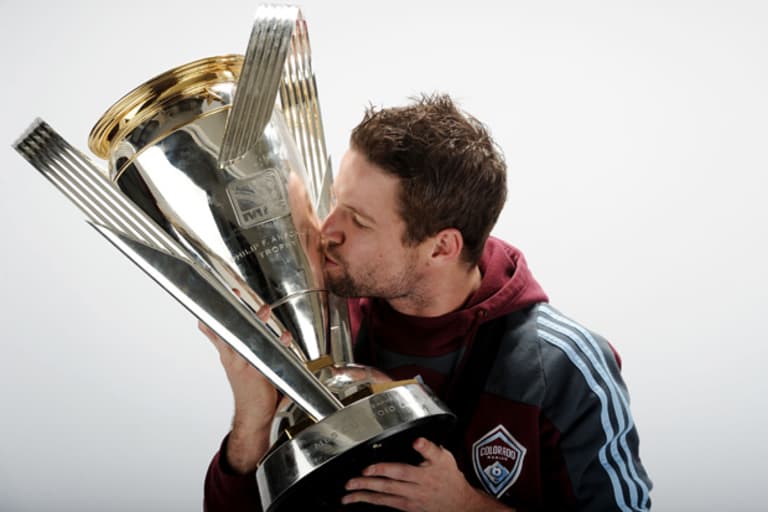
Moor’s US duty includes a stint on that much-maligned but talented team of youngsters from the 2007 Copa América, as well what seemed like a promising moment in a friendly against Mexico in February 2008. But it was his trains-passing-in-the-night moment: His pitch-perfect cross gave Jozy Altidore his first US goal, and that’s the moment most fans remember.
Moor, however, has come to peace with the idea that the US decision ultimately will never be his.
“Of course I want to get called in every time there’s a camp, but all I can control is what I do here,” he said. “I can’t control Bob Bradley’s decisions or Jurgen Klinsmann’s decisions. And there is a certain satisfaction with that. All I can do is give everything I’ve got here.”
And that’s been Moor’s mantra though much of his life. The choices won’t always be his, and the outcomes might hinge more on luck and fate than whatever work he puts in to steer them his way.
But just try telling Drew Moor it hasn’t all worked out for the best.

